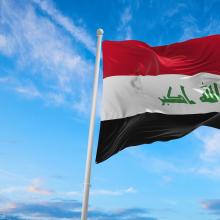December 02, 2024

We, the undersigned organisations, urge the authorities of the Kingdom of Saudi Arabia not to deport Ahmed Fathi Kamal Kamel to Egypt, where he would be at high risk of being subjected to torture and other human rights violations. An extradition would constitute a violation of the principle of non-refoulement enshrined in article 3 of the Convention against Torture, which was ratified by Saudi Arabia in 1997. We further urge the Saudi authorities to release Kamel immediately.
Kamel, an Egyptian citizen, took part non-violently in the Arab Spring protests in Egypt in 2011 and 2014. During the protests, he was shot on two separate occasions, leaving him with long-term health complications, including embedded shrapnel that remains in his body. He was arrested, detained and subjected to torture following the protests in 2014. Released on bail, he managed to flee to Saudi Arabia, where he has resided since. His wife and their two young children, aged 2 years and 10 months, are American nationals and have been living between the U.S. and Saudi Arabia. He was sentenced in absentia in 2021 to 25 years in prison, equivalent to a life sentence, for his involvement in the protests.
Kamel was arrested in October 2022 in Saudi Arabia following an initial extradition request by Egypt. After being held in detention for three days without being presented with any official documentation, he was released and was able to remain in the country without further issues. On November 12, 2024, he received a call from the Southern Jeddah police station summoning him to the station the following day. On November 13, 2024, he was arrested for the second time at Egypt's request. He is currently detained in Jeddah, and faces imminent extradition to Egypt.
Saudi Arabia and Egypt are both parties to the Riyadh Arab Agreement for Judicial Cooperation (Riyadh Convention), which governs extradition proceedings between signatory states. The Riyadh Convention’s restrictive interpretation of political offences allows for the extradition of individuals on political grounds, which is inconsistent with international human rights law.
UN human rights experts have expressed their concern about Saudi Arabia’s failure to respect the principle of non-refoulement in the past. In particular, the UN Committee Against Torture highlighted “the absence of national legislation and procedures explicitly regulating expulsion, refoulement and extradition that are consistent with the requirements of article 3 of the Convention”, and recommended that the Saudi authorities “ensure the adoption of domestic legislation against refoulement and effective remedies in removal proceedings, including review by an independent judicial body”.
In this regard, it should be recalled that the practice of torture and other forms of ill-treatment is widespread in Egypt, including against opposition figures, critics, and peaceful protesters. In 2024, UN human rights experts underlined the “concerning trend” of human rights abuses in Egypt, including torture and ill-treatment, “with the apparent purpose of stifling dissent, criticism and opposition”.
In 2017, the UN Committee against Torture undertook a review of Egypt’s compliance with the Convention against Torture, and came to the “inescapable conclusion that torture is a systematic practice in Egypt.” This conclusion was reaffirmed by the UN Human Rights Committee in 2023, which expressed its deep concern over the “reportedly systematic use of torture and cruel, inhuman or degrading treatment at the hands of law enforcement personnel.”
Concerns over the use of torture in Egypt prompted the UN Committee against Torture to launch two investigations under Article 20 of the Convention Against Torture. In both instances, the Committee also concluded that torture was systematically employed by Egypt's security forces.
Kamel’s involvement in the Arab Spring protests and the harsh consequences he faced as a result place him at a heightened risk of torture and other human rights violations if he were to be deported to Egypt. As such, the undersigned organisations urge the Saudi authorities to refrain from extraditing him and to release him immediately.
Erratum: This joint letter was modified on December 11, 2024 to correct inaccurate information concerning the diffusion of an Interpol red notice.
Signatories:
ALQST For Human Rights
Cairo Institute for Human Rights Studies
Committee For Justice (CFJ)
DAWN
Egyptian Human Rights Forum (EHRF)
Egyptian Front for Human Rights (EFHR)
European Saudi Organisation for Human Rights (ESOHR)
Freedom House
HuMENA for Human Rights and Civic Engagement
MENA Rights Group
Middle East Democracy Center (MEDC)
International Service for Human Rights (ISHR)
Start Point






